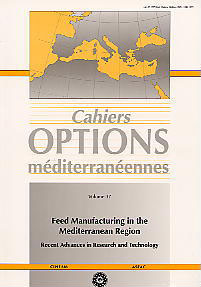| Article précédent | p. 229-239 | Article suivant |
Nutrition as a tool to reduce the impact on the environment
Swine manure production mostly spread in the neighbourhood that may lead to accumulation of minerals in the soil, such as, phosphorus, copper and zinc. Moreover, nitrate may leach, thus increasing nitrate levels in ground and surface water. Large swine units generate bad smell, ammonia and dust, that may exceed tolerable levels. Negative aspects of swine production on the environment in some countries or states have already led to a new legislation that limits the use of animal manure or the expansion or localization of pig operations. The consequences of intensive swine production on the environment are outlined as well as possible ways of solution by means of nutrition. In this respect we focus on nitrogen, phosphorus and ammonia emission.
- [ Afficher ]
- [ Télécharger ]
- [ Exporter la citation ]
Vous pouvez télécharger la citation au format :
- [ Imprimer ]
-
Mots-clés
AMMONIAC, IMPACT SUR L'ENVIRONNEMENT, NUTRITION ANIMALE, PORCINCiter cet article
Jongbloed A.W., Lenis N.P. Nutrition as a tool to reduce the impact on the environment. In : Brufau J. (ed.), Tacon A. (ed.). Feed manufacturing in the Mediterranean region: Recent advances in research and technology. Zaragoza : CIHEAM, 1999. p. 229-239. (Cahiers Options Méditerranéennes; n. 37). 2. Conference of Feed Manufacturers of the Mediterranean, 1998/03/25-27, Reus (Spain). http://om.ciheam.org/om/pdf/c37/99600021.pdf



